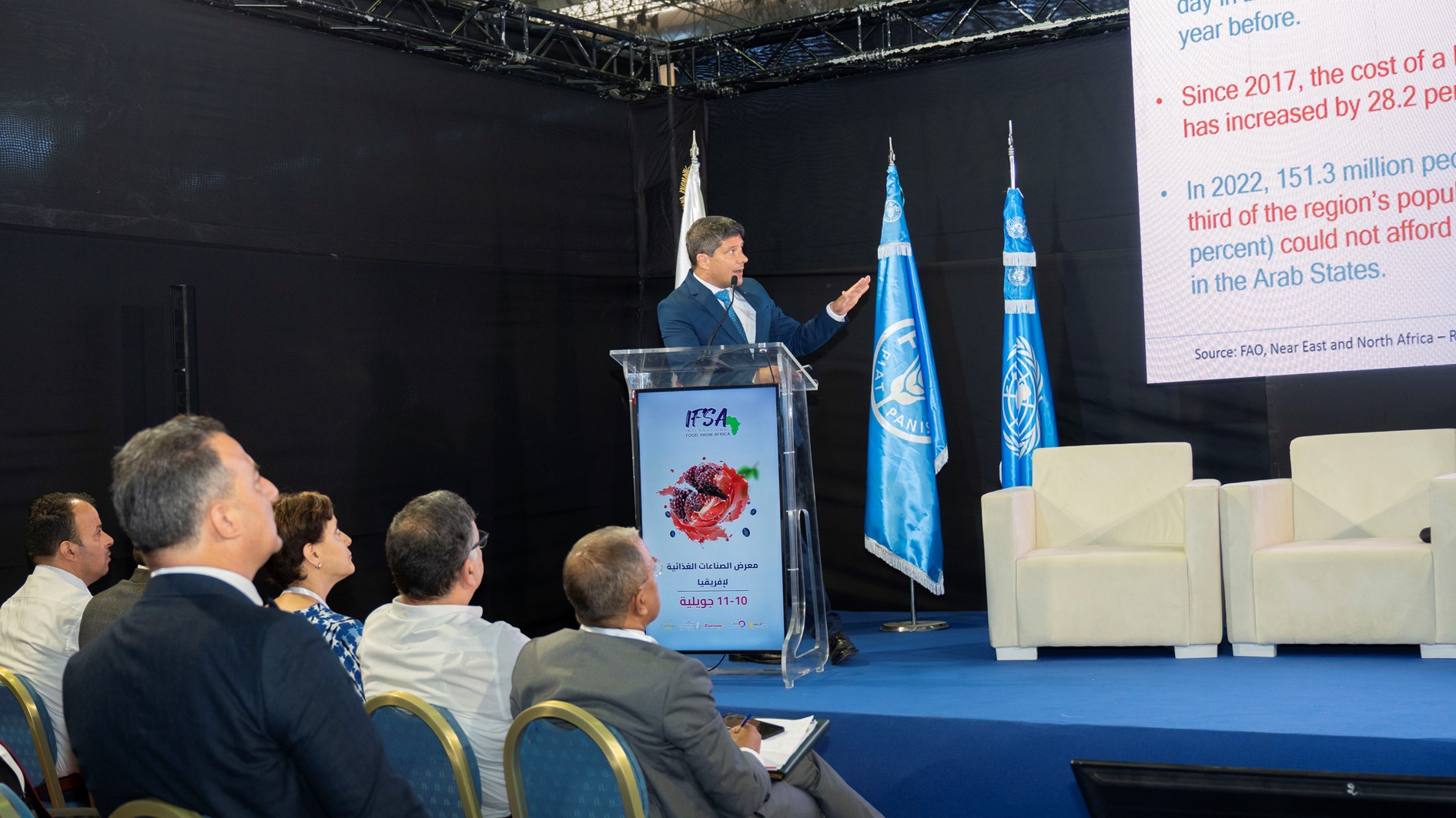Arab Bread Day Symposium: "From Seed to Bread"
Towards the creation of an Arab Technical Institute specializing in bread and wheat science

©FAO
9 – 11 July 2025: An important gathering – the Arab Bread Day Symposium – was held in Tunisia under the inspiring slogan "From Seed to Bread". The event was of great significance within the Arab region. The Arab Federation for Food Industries, the International Show Food Africa, the Arab Organization for Agricultural Development, the Arab Center Organization for the Studies of Arid Zones and Dryland (ACSAD) and ARAF-Connect collaborated to organize the three-day event, in which the Food and Agriculture Organization for the United Nations (FAO) participated.
The objective of the symposium was to provide a platform for dialogue and cooperation to enhance Arab food security and develop the grain sector. A range of themes were discussed, including the reality and prospects of cereal production in the Arab region in the context of climate change, the system and mechanisms to support bread loaf chains, consumption culture and requirements for enhancing the nutritional value of bread with a study of manufacturing alternatives, techniques to produce healthy, nutritious and innovative bread, ways to improve investment partnerships and developing and qualifying technical, economic and administrative cadres working in the grain sector to keep abreast of global developments.
In his opening speech, Mr. Mohamed Amrani, the FAO Representative in Tunisia, emphasised the significant potential of the Near East and North Africa region in establishing resilience and sustainability in food systems. “Farmers and researchers across the Arab world are working together to preserve indigenous grain varieties and improve crop productivity. Governments are working to balance food subsidies with fiscal sustainability. Entrepreneurs are introducing innovations in food processing and nutrition. Consumers, particularly the younger demographic, are increasingly seeking healthier, safer and more sustainable food options.”
Tamás Vattai, Nutrition and food systems officer at the FAO Regional Office for the Near East and North Africa region addressed a range of issues pertinent to the grain sector, including production, storage, processing, trade, consumption, and support mechanisms. He emphasized that due to the high dependence on imports and the adverse effect of climate change on yields, the grain infrastructure modernization, including the storage system, will play a key role in maintaining the wheat supply of the region.
In his opening statement, Dr. Hayssam Jaffan, President of the Arab Federation, emphasized the importance of establishing an Arab Technical Institute specializing in bread and wheat science. This institute will serve as a scientific and technical reference point for the Arab region.
Other participants explored future needs, proposed the establishment of joint Arab projects to reduce the grain deficit, and hosted the inaugural Arab loaf of bread competition in the Middle East and North Africa. The recommendations issued by the symposium will be submitted to the Food Systems Summit, to be held in Addis Ababa at the end of July.
In addition to the symposium, Arab Bread Day and the competition, several other events were scheduled to take place in parallel. These included the Carthage Olive Oil Competition, the Heritage Food Festival, the Best Pizza Competition and a school cooking competition. During the Arabic Loaf Competition each loaf was judged based on its appearance, which reflects craftsmanship and attention to detail, and its taste and flavour, which must meet the authentic Arabic taste buds. In addition, the nutritional value and quality of the ingredients highlight the contestant's awareness of health and the quality of the materials used.
The event saw significant participation from 12 countries and a diverse range of representatives. These included public and private sector officials, wheat producers and suppliers, bread manufacturers, grain mills and bakeries, as well as academics and representatives of relevant Arab and international organizations.
